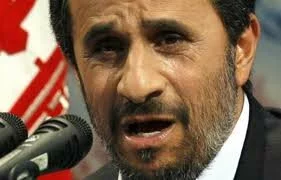 Egypt’s ruling military council reaffirmed on Monday that it will transfer power to civilian authority by the end of the month, but Egypt analysts warn that the nation could be teetering toward another political crisis as a standoff brews between the interim military rulers and Islamists.
Egypt’s ruling military council reaffirmed on Monday that it will transfer power to civilian authority by the end of the month, but Egypt analysts warn that the nation could be teetering toward another political crisis as a standoff brews between the interim military rulers and Islamists.
As Egyptians celebrated the apparent victory of the Muslim Brotherhood’s Mohammed Morsi in Tahrir Square, the nation’s military power issued an addition to its constitutional declaration that limits the president’s powers in overseeing the military and puts legislative affairs in the generals’ hands.
“The military is clearly trying to turn the clock back to what existed under the Mubarak regime,” said Marina Ottaway, a Middle East analyst at the Carnegie Endowment for International Peace. “What is clear more and more is that the military sacrificed (Hosni) Mubarak to maintain the power of the old establishment.”
Mubarak was driven from office more than a year ago by a revolt. Since then, Islamist parties have emerged as the strongest political force in Egypt, alarming many in the powerful military establishment who seem eager to maintain control.
In Washington, the Obama administration expressed concerns about the move by the Egyptian military, which was foreshadowed by an Egyptian court decision last week to dissolve the parliament.
Pentagon press secretary George Little said that the U.S. is “deeply concerned” about the constitutional declaration and that the administration would encourage Egyptian officials “to relinquish power to civilian elected authorities.”
“This is a critical moment in Egypt, and the world is watching closely,” State Department spokeswoman Victoria Nuland said. “We are particularly concerned by decisions that appear to prolong the military’s hold on power.”
The military’s decision to take charge of writing the constitution was a challenge to the democratic process, Egypt analysts said.
“I would call it a paper coup,” said Eric Trager, an Egypt analyst at the Washington Institute for Near East Policy. “The questions now are: ‘Will there be mass protests? Will there be some type of accommodation between the Brotherhood and the military?’ “
Morsi’s victory hasn’t been certified, and his main challenger, Ahmed Shafiq, is disputing the Brotherhood win. Official election results are scheduled to be announced Thursday.
If Morsi becomes president, he’ll have little power because of the military’s declaration.
“This is the beginning of another phase of the fight over the future of Egypt,” said Khalil Al-Anani, a Middle East expert at Durham University.
Morsi, a U.S.-educated engineer, became the Brotherhood’s presidential nominee when the organization’s first choice, Khairat Al-Shater, was barred from running on legal grounds.
It’s a remarkable turn of events for the Muslim Brotherhood, which was founded in 1928, the same year Mubarak was born. For many years the group — whose ideology is said to have inspired Osama bin Laden — was banned under Mubarak’s government.
“It would be the first time the Muslim Brotherhood ascended to the highest office in the land anywhere in the Arab world,” said Shadi Hamid of the Brookings Doha Center, a think tank in Qatar. “This would be a major (and) symbolic victory for Islamist groups across the region.”
The Obama administration appears ambivalent about the Muslim Brotherhood, which has espoused virulent anti-American rhetoric throughout the years.
Representatives of the group met with State Department and White House officials in Washington this year, but FBI Director Robert Mueller noted to a House committee last year that elements of the organization have supported terrorism.
The Muslim Brotherhood seeks rule by Islamic law, but not necessarily a fundamentalist interpretation of it. Morsi and the Muslim Brotherhood are more moderate than hard-liners known as Salafis, who follow a seventh-century view of Islam.
Morsi has said he will respect the 1979 peace treaty between Egypt and Israel. Morsi has complained, however, that Israel repeatedly breaks the treaty.
The Brotherhood has said it believes in free-market economic policies, and it says it will build the nation by focusing on education, individual empowerment and the private sector.
“I think you will see some possible cultural and social changes,” said Steven Cook of the Council on Foreign Relations. “Although I don’t know how aggressive they’ll be.”
SOURCE:USA TODAY
















I see something really interesting about your web blog so I saved to favorites .
Comment by dog waste disposal bags — July 5, 2012 @ 4:04 am
I just want to mention I am just beginner to blogging and really loved your web blog. Most likely I’m going to bookmark your blog . You certainly come with remarkable writings. Kudos for revealing your blog site.
Comment by Kitty Bede — August 5, 2012 @ 4:34 pm
My brother suggested I might like this blog. He was entirely right. This post truly made my day. You cann’t imagine simply how much time I had spent for this info! Thanks!
Comment by wyroby z betonu — August 22, 2012 @ 3:54 am